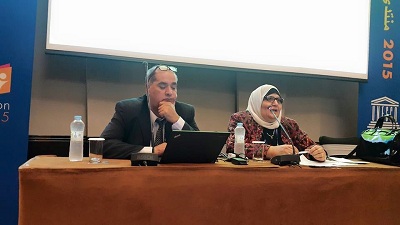ACEA Members
 Palestine Coalition for Education for all
Palestine Coalition for Education for all Somalia Coalition for Education for all
Somalia Coalition for Education for all Jordan Coalition for Education for all
Jordan Coalition for Education for all Lebanon Coalition for Education for all
Lebanon Coalition for Education for all Mauritania Coalition for Education for all
Mauritania Coalition for Education for all Morocco Coalition for Education for all
Morocco Coalition for Education for all Egypt Coalition for Education for all
Egypt Coalition for Education for all Iraq Coalition for Education for all
Iraq Coalition for Education for all Yemen Coalition for Education for all
Yemen Coalition for Education for all Sudan Coalition for Education for all
Sudan Coalition for Education for all Tunisia Coalition for Education for all
Tunisia Coalition for Education for all (Arab Network for Civic Education (ANHRE
(Arab Network for Civic Education (ANHRE The Arab Resource to develop knowledge
The Arab Resource to develop knowledge
The Speech of the General Coordinator of ACEA in the World Education Forum 2015

Ms. Irina Bokova,
Director-General of UNESCO
Mr. Kailash Satyarthi ,winner
of the Nobel Peace Prize in 2014
Ladies and gentlemen, heads of
delegations and heads of institutions
On my own behalf and on behalf
of the Collective Consultation of NGOs. I would like to extend my sincerest
thanks and appreciation to your presence and your efforts throughout these
years of work to get to this day without you this wouldn’t happen.
Dear audience , please allow
me and Let the me on your behalf extend my thanks and appreciation to UNESCO
work crew who have followed this hard work , headed by her great spirit, smile
, strength and will Ms. Sabine
After the big debates, and the
different views, we get to indisputable
result, which should continue the partnership to promote the concept , the
content and the application of the right to education.
It is required from all of us
and the governments to strengthen the partnership with CSOs , and if the
evaluation of the pre-2015 received considerable attention, the same case
applies to talk about education post 2015. We
have to move forward and discuss the work programs targeting urgent
issues that cannot be delayed.
What we have to do?
In any speech we must emphasize
that the right to education is a human right without any conditions and is a
guarantee for achieving the economic, environmental and social justice that is
still absent from the scene. The concern is growing in the light of the
proportion of countries that don’t exceed the half and have only achieved measurable goals of EFA,
and the survival of tens of millions of students who are of school age outside
the framework of teaching and learning .It is
problem and requires confrontation.
The same applies to the girls education,
we have achieved successes, but the survival of high ratios without education
is a stigma. Officially waged, we all have a responsibility and moral
obligation to bridge the gaps, all the way to high standards education, with prospects based on the rights and global
inclusiveness. We are still far from achieving the goal, which would require a
broader partnership with comprehensive
strategy .
We recognize that education,
development and the economy must comply, hence the educational activities
deserve permanent presence on the agenda of diverse global forums, and this is
dictated by the nature of the challenges and the essence of the problem, while
ensuring an active and influential role for civil society that is supposed to take
active role, despite variations in the level of freedom granted from one
country to another, and here we must ensure that there is effective and vital
role of civil society at all levels, which starts from the stage of thinking
into policy-making or implementation or follow-up.
Today, and this year, we are not
starting the stage, but we are beginning a new era requires a connection …. requires
review and clarity, and the provision of guarantees for free and compulsory
enrollment, and equality of opportunity and fairness away from the scourge of
war, or differences in gender, language, or the curse of geography that still
chasing the World countries. As CSOs we have to be a model in terms of due
diligence, transparency and communication with the authorities.
Integration, adult education,
the empowerment of unions, activation of frameworks, the skills of the twentieth
century, and lifetime learning requirements are still in the Minimum, and here
we hope to be present in any programs, and acquire the activation of unions,
frameworks and enable it special importance ,since it is a private gateway to
enable civil society to perform its mission.
The debate revealed that there
is a lot to be done, and we look forward to UNESCO continues to lead the scene
up to enhance participatory values between all parties, official and civil,
challenges that lie in the way which still pose a real threat to the future of
our generations, and talk about the quality of education in some cases and
contexts ,talks that may not seem feasible in the absence of the opportunity to
obtain the right to education. The indicators repeatedly reaffirms that the
achievement of successes scattered here and there do not mean success absolutely,
and if we cross towards the future, the most important question does not lie
in: Where we have succeeded?
But
Where did we fail?
Where are the spending plans?
What are the ways to channel
support to double interest, and expand the circle of beneficiaries ?!
Ladies and gentlemen ,,,,,,
We recognize that the facing failure begins by setting effective solutions for complicated interval situations. We are required to look in-depth at ways to get out with minimal losses of rapid changes, and today w
 9th Global meeting of the CCNGO
9th Global meeting of the CCNGO



